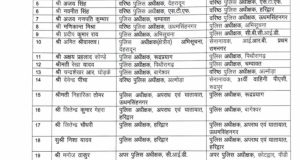Industries located in the SIDCUL (State Infrastructure and Industrial Development Corporation of Uttarakhand Ltd) industrial area in Pantnagar in Udham Singh Nagar district will remain closed from June 25 to July 7 in order to understand what industrialists termed ”the complexities associated with the new GST regime.”
“A comprehensive knowledge of the tax structure would help us price our products in line with the new taxation structure. That is why we have decided to shut down our units for this process,” said Manoj Tyagi, president of the Sidcul Entrepreneurs’ Welfare Society.
The lockdown will affect over 400 factories at the Pantnagar industrial hub which has units involved in manufacturing FMCG items, electronic goods & components, medicines as well as auto parts. According to estimates, factories located in the area cumulatively produce goods worth almost Rs 500 crore daily and the almost fortnight-long shutdown will lead to a production loss of around Rs 6500 crore. The move, coming as it does just months after demonetisation, which led to manufacturing in several units being severely impacted, is expected to affect thousands of labourers who work on contractual basis in the factories.
“We had just started to recover from the after-effects of demonetisation when the pre-effects of GST have jolted us. It will be extremely tough for daily wagers to make ends meet if factories shut down for almost half a month,”said C P Sharma, a labour contractor who supplies workers to factories in the area. He added that many workers might think of leaving for their native states soon, as had happened during demonetisation. “In order to retain the workers, we will be speaking to the management of the industrial units to employ labourers in routine maintenance work for the time being”, Sharma added
Sources said that although the shutdown will continue for almost a fortnight, some industries may resume production after a week or 10 days. Meanwhile, Tyagi said that during the shutdown period, each industrial unit will try and primarily understand the tax implications in the cost of the raw material used by them. “The biggest fallout is going to be on the pricing of products, especially in the context of the anti-profiteering provision in the GST Bill, so our focus will be to understand how much the raw materials are going to cost us,” he said.
 Dainik Nation News Portal
Dainik Nation News Portal




